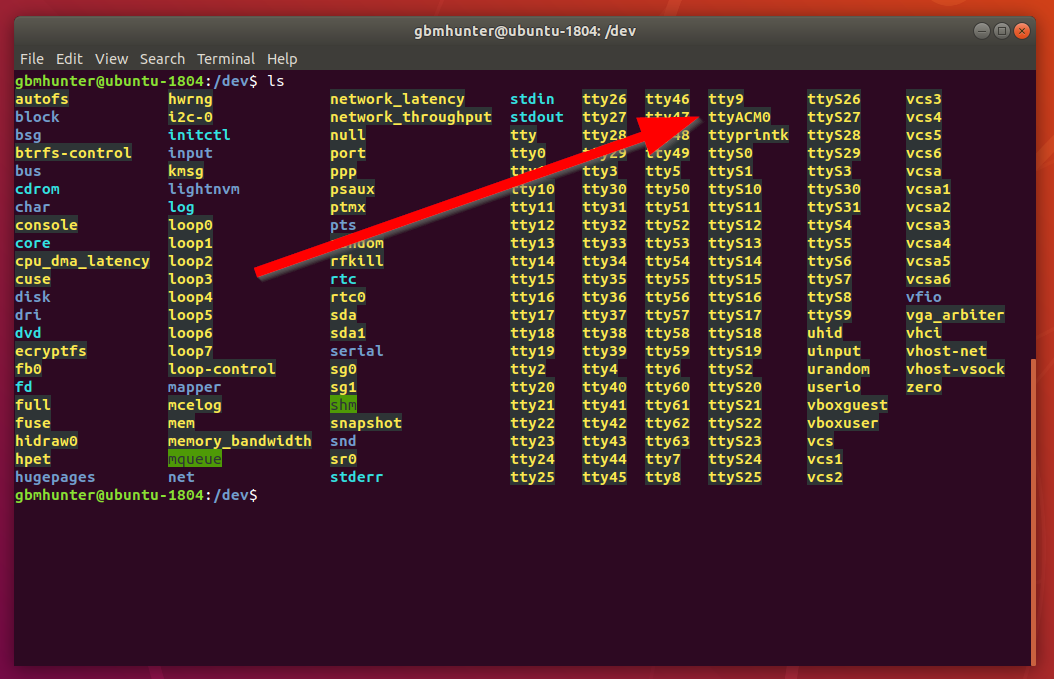Dev C++ Library List
58 rows C Library - list - List is a popularly used sequence container. Container is an object that holds data of same type. List container is implemented as doubly linked-list, hence it.
- Bloodshed Dev-C is a full-featured Integrated Development Environment (IDE) for the C/C programming language. It uses Mingw port of GCC (GNU Compiler Collection) as its compiler. It creates native Win32 executables, either console or GUI. Dev-C can also be used in combination with Cygwin.
- C compatibility headers. For some of the C standard library headers of the form xxx. H, the C standard library both includes an identically-named header and another header of the form cxxx (all meaningful cxxx headers are listed above). With the exception of complex. H header included in the C standard library places in the global namespace each name that the corresponding.
- All I can figure is that the instructions are for Linux, but I'm running Windows. I found a couple of instructions here on SO that tell me to copy certain files into the Dev-C folder, but I can't find the files specified. I've never had to install a library like this before, so I'm really lost.f.
- Nov 29, 2016 Delphi is the ultimate IDE for creating cross-platform, natively compiled apps. Are you ready to design the best UIs of your life? Our award winning VCL framework for Windows and FireMonkey (FMX) visual framework for cross-platform UIs provide you with the foundation for intuitive, beautiful.
- On this page you will API references, tutorials, online resources, documentation downloads, etc. About C/C and Win32 programming. However, if you're looking for documentation about an add-on library, you should look at the page of that library.
- This list of functions is incomplete, but will be updated when possible to eventually fill the list to all library functions. A note about C vs. C Note that header files from the C standard library should have the form headername.h when used in a C program, and the form cheadername when used in C programs (note the c as a prefix).
- The C Standard Library
- C Standard Library Resources
- C Programming Resources
- Selected Reading
The stdio.h header defines three variable types, several macros, and various functions for performing input and output.
Library Variables
Following are the variable types defined in the header stdio.h −
| Sr.No. | Variable & Description |
|---|---|
| 1 | size_t This is the unsigned integral type and is the result of the sizeof keyword. |
| 2 | FILE This is an object type suitable for storing information for a file stream. |
| 3 | fpos_t This is an object type suitable for storing any position in a file. |
Library Macros
Following are the macros defined in the header stdio.h −

| Sr.No. | Macro & Description |
|---|---|
| 1 | NULL This macro is the value of a null pointer constant. |
| 2 | _IOFBF, _IOLBF and _IONBF These are the macros which expand to integral constant expressions with distinct values and suitable for the use as third argument to the setvbuf function. |
| 3 | BUFSIZ This macro is an integer, which represents the size of the buffer used by the setbuf function. |
| 4 | EOF 1) Any vehicle in the automotive community that has a reputation for having a performance-oriented modification-friendly platform. Typically, modification paths fall into one of two categories: either improving the engine's power output or improving the cars suspension/braking system. Car tuning school. Jul 03, 2016 Any mechanic or shop can define tune up anyway he wants. Generally it includes changing out plugs, may include changing out air filter, fuel filter, PCV valve. In the good old days, this was defined as a “minor” tune up. A “major” tune up included changing out distributor cap, rotor, plug wires. I find it interesting when you said that a possible way to tune cars with automatic transmissions is to get an ECU so that they can shift faster. In addition to that, before having it installed in a car, a driver must buy it from a trusted local dealer. Dec 17, 2013 A car tune-up is a type of preventive maintenance performed on a vehicle to ensure it continues to perform well. A tune-up is typically regularly scheduled - once a year is a very soft rule of thumb - and offers the chance for you to get all of the preventive maintenance your. This macro is a negative integer, which indicates that the end-of-file has been reached. |
| 5 | FOPEN_MAX This macro is an integer, which represents the maximum number of files that the system can guarantee to be opened simultaneously. |
| 6 | FILENAME_MAX This macro is an integer, which represents the longest length of a char array suitable for holding the longest possible filename. If the implementation imposes no limit, then this value should be the recommended maximum value. |
| 7 | L_tmpnam This macro is an integer, which represents the longest length of a char array suitable for holding the longest possible temporary filename created by the tmpnam function. |
| 8 | SEEK_CUR, SEEK_END, and SEEK_SET These macros are used in the fseek function to locate different positions in a file. |
| 9 | TMP_MAX This macro is the maximum number of unique filenames that the function tmpnam can generate. |
| 10 | stderr, stdin, and stdout These macros are pointers to FILE types which correspond to the standard error, standard input, and standard output streams. |
Library Functions
Following are the functions defined in the header stdio.h −
Follow the same sequence of functions for better understanding and to make use of Try it(Online compiler) option, because file created in the first function will be used in subsequent functions.
C++ Linked List Library

Turbo C Library Functions
| Sr.No. | Function & Description |
|---|---|
| 1 | int fclose(FILE *stream) Closes the stream. All buffers are flushed. |
| 2 | void clearerr(FILE *stream) Clears the end-of-file and error indicators for the given stream. |
| 3 | int feof(FILE *stream) Tests the end-of-file indicator for the given stream. |
| 4 | int ferror(FILE *stream) Tests the error indicator for the given stream. |
| 5 | int fflush(FILE *stream) Flushes the output buffer of a stream. |
| 6 | int fgetpos(FILE *stream, fpos_t *pos) Gets the current file position of the stream and writes it to pos. |
| 7 | FILE *fopen(const char *filename, const char *mode) Opens the filename pointed to by filename using the given mode. |
| 8 | size_t fread(void *ptr, size_t size, size_t nmemb, FILE *stream) Reads data from the given stream into the array pointed to by ptr. |
| 9 | FILE *freopen(const char *filename, const char *mode, FILE *stream) Associates a new filename with the given open stream and same time closing the old file in stream. |
| 10 | int fseek(FILE *stream, long int offset, int whence) Sets the file position of the stream to the given offset. The argument offset signifies the number of bytes to seek from the given whence position. |
| 11 | int fsetpos(FILE *stream, const fpos_t *pos) Sets the file position of the given stream to the given position. The argument pos is a position given by the function fgetpos. |
| 12 | long int ftell(FILE *stream) Returns the current file position of the given stream. |
| 13 | size_t fwrite(const void *ptr, size_t size, size_t nmemb, FILE *stream) Writes data from the array pointed to by ptr to the given stream. |
| 14 | int remove(const char *filename) Deletes the given filename so that it is no longer accessible. |
| 15 | int rename(const char *old_filename, const char *new_filename) Causes the filename referred to, by old_filename to be changed to new_filename. |
| 16 | void rewind(FILE *stream) Sets the file position to the beginning of the file of the given stream. |
| 17 | void setbuf(FILE *stream, char *buffer) Defines how a stream should be buffered. |
| 18 | int setvbuf(FILE *stream, char *buffer, int mode, size_t size) Another function to define how a stream should be buffered. |
| 19 | FILE *tmpfile(void) Creates a temporary file in binary update mode (wb+). |
| 20 | char *tmpnam(char *str) Generates and returns a valid temporary filename which does not exist. |
| 21 | int fprintf(FILE *stream, const char *format, ..) Sends formatted output to a stream. |
| 22 | int printf(const char *format, ..) Sends formatted output to stdout. |
| 23 | int sprintf(char *str, const char *format, ..) Sends formatted output to a string. |
| 24 | int vfprintf(FILE *stream, const char *format, va_list arg) Sends formatted output to a stream using an argument list. |
| 25 | int vprintf(const char *format, va_list arg) Sends formatted output to stdout using an argument list. |
| 26 | int vsprintf(char *str, const char *format, va_list arg) Sends formatted output to a string using an argument list. |
| 27 | int fscanf(FILE *stream, const char *format, ..) Reads formatted input from a stream. |
| 28 | int scanf(const char *format, ..) Reads formatted input from stdin. |
| 29 | int sscanf(const char *str, const char *format, ..) Reads formatted input from a string. |
| 30 | int fgetc(FILE *stream) Gets the next character (an unsigned char) from the specified stream and advances the position indicator for the stream. |
| 31 | char *fgets(char *str, int n, FILE *stream) Reads a line from the specified stream and stores it into the string pointed to by str. It stops when either (n-1) characters are read, the newline character is read, or the end-of-file is reached, whichever comes first. |
| 32 | int fputc(int char, FILE *stream) Writes a character (an unsigned char) specified by the argument char to the specified stream and advances the position indicator for the stream. |
| 33 | int fputs(const char *str, FILE *stream) Writes a string to the specified stream up to but not including the null character. |
| 34 | int getc(FILE *stream) Gets the next character (an unsigned char) from the specified stream and advances the position indicator for the stream. |
| 35 | int getchar(void) Gets a character (an unsigned char) from stdin. |
| 36 | char *gets(char *str) Reads a line from stdin and stores it into the string pointed to by, str. It stops when either the newline character is read or when the end-of-file is reached, whichever comes first. |
| 37 | int putc(int char, FILE *stream) Writes a character (an unsigned char) specified by the argument char to the specified stream and advances the position indicator for the stream. |
| 38 | int putchar(int char) Writes a character (an unsigned char) specified by the argument char to stdout. |
| 39 | int puts(const char *str) Writes a string to stdout up to but not including the null character. A newline character is appended to the output. |
| 40 | int ungetc(int char, FILE *stream) Pushes the character char (an unsigned char) onto the specified stream so that the next character is read. |
| 41 | void perror(const char *str) Prints a descriptive error message to stderr. First the string str is printed followed by a colon and then a space. |